Keywords: Ministry
There are more than 200 results, only the first 200 are displayed here.
-
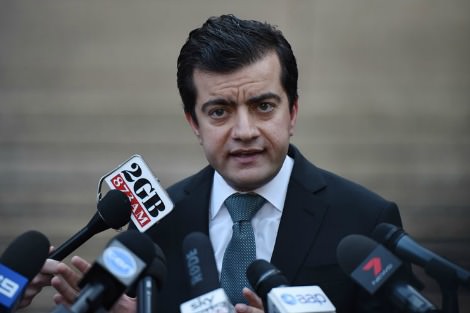
AUSTRALIA
- John Warhurst
- 20 June 2017
5 Comments
The revelations that several billionaires of Chinese origin have sought to influence Australian politics through large political donations have rekindled bipartisan concern to ban such donations. That it took investigative journalism by ABC and Fairfax media to generate such a rush to reform is a reflection on the Australian political class. While it is likely that reform legislation will be introduced and passed before the end of the year that will be only a very partial response to a bigger problem.
READ MORE 
-
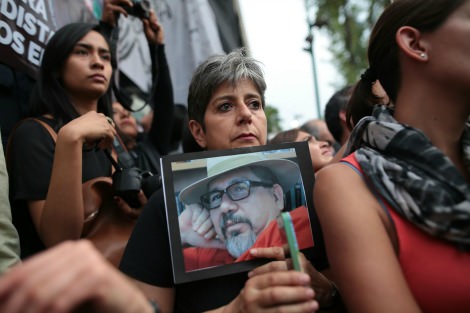
INTERNATIONAL
- Ann Deslandes
- 22 May 2017
2 Comments
Last Tuesday night in Mexico City I headed to a bar with some press colleagues. It was late and the bar was lit with candles for mood lighting. As we sat down to order drinks my friend Joan took the candle in front of her and said, 'I'll hold onto this for the next journalist to be murdered.' We had been at a vigil to mourn the murder of journalist Javier Valdez and to protest the ever-escalating number of journalist murders in the country in a legal and political climate of almost total impunity.
READ MORE 
-

RELIGION
- Frank Brennan
- 17 May 2017
As the Church of 2030, we need to be more attentive to the contemplation of believers and our experience of spiritual realities, as well as the preaching of the church. Pope Francis has no time whatever for the notion of the Church as a perfect society. But, there is no way that Francis wants to abandon the ideals and the commitment to truth and justice so well exemplified by his predecessors John Paul II and Benedict.
READ MORE
-

RELIGION
- Frank Brennan
- 15 May 2017
The reconciliation of this vertical relationship is possible only through the mediation of Jesus who embodies, lives and dies the reality of this reconciliation. He puts us right with our God and thereby establishes the basis for right relationship with each other. In many countries such as Australia, Timor Leste and South Africa, the public rhetoric and programs for reconciliation have, at least in part, been informed and underpinned by this theological perspective.
READ MORE
-

RELIGION
- Frank Brennan
- 08 May 2017
1 Comment
Our Church is presently a strained, outdated social institution with an exclusively male hierarchy and clergy. But it is also the privileged locus for us to be called to the banquet of the Lord sharing theology and sacrament which have sustained the hearts and minds of similar pilgrims for two millennia. Thank God for Pope Francis who is showing us the way, helping us to find meaning in our changing and chaotic world, putting a fresh spring in the step of all those Catholics holding in tension the prophetic and the practical, the theological and the humanist, the tradition and the contemporary reality.
READ MORE
-

RELIGION
- Frank Brennan
- 17 February 2017
3 Comments
The commission's forensic scrutiny of past actions of church officials in no way constitutes an interference with the freedom of religion. Its spotlight is to be welcomed, provided only that it is shone on a truly representative sample of all institutions which have been found wanting and provided the same light filter is applied to all institutions. I do however have a problem with the commission making findings on issues like the want of compassion when those findings are made only against a Church.
READ MORE
-
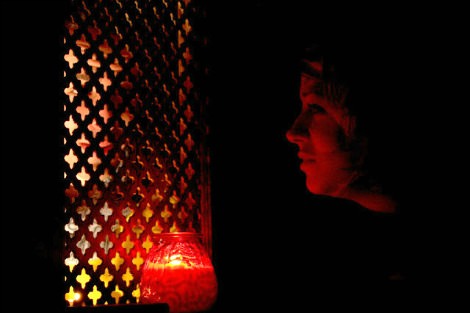
RELIGION
- Stephen de Weger
- 16 February 2017
64 Comments
Three years ago I began my research Masters into clerical sexual misconduct involving adults (CSMIA). I have now completed that study. It revealed highly relevant and crucial information towards the understanding of CSMIA. One conclusion based on my and other studies is that three major aspects need to be included in any discussion of CSMIA, in order to reach a fuller understanding of how CSMIA is able to occur, how it is interpreted, how it affects people's lives, and how it is dealt with.
READ MORE 
-
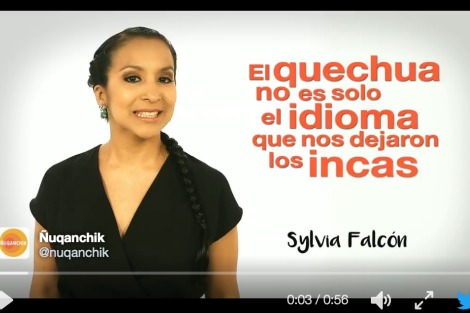
INTERNATIONAL
- Antonio Castillo
- 24 January 2017
4 Comments
One indigenous language vanishes every two weeks, and Quechua, once the tongue of Peru's mighty Inca Empire, was one of those heading to extinction. That is, until last December, when the first ever Quechua language television news service went to air on the platforms of TV Peru and National Radio, the public broadcaster. According to one presenter it is a 'space that breaks all the paradigms of discrimination and inequality toward those who are speakers of indigenous languages'.
READ MORE 
-

ENVIRONMENT
- Frank Brennan
- 28 November 2016
'No matter what the economic, political and legal problems confronted by modern day India, our response can be improved by an application of the key principles and norms developed in the international law of trade and human rights, helping to enunciate the realm of law, regulation and political accountability, enhancing public scrutiny providing the right environment for doing business.' Frank Brennan presents the 25th JRD Tata Oration, Xavier School of Management, Jamshedpur, India, 26 November 2016.
READ MORE
-

RELIGION
Two days after his election, the communications team of General Congregation 36 sat down with Father General Arturo Sosa to discuss his life and thought. The conversation introduces the new Superior General in a way that is more personal, to Jesuits and the wider Ignatian family around the world.
READ MORE
-
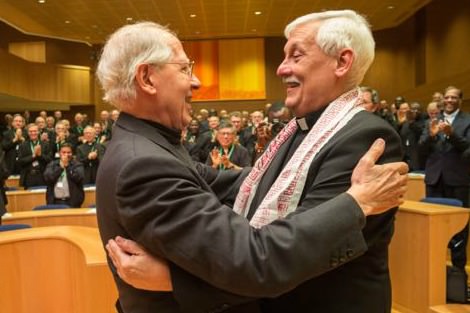
RELIGION
- Andrew Hamilton
- 07 November 2016
6 Comments
Ordinarily I wouldn't dare to say political leaders have anything to learn from Jesuits. But these are the kind of extraordinary times of anxiety and flux that led ancient rulers to consult oracles, read tea leaves and look at the flight of birds. People fret because their future and pockets rise and fall on the tide of of would-be presidents. In the sour slurry of discontent and puzzlement the election of a Venezuelan political scientist as international leader of the Jesuits provides material for broader reflection.
READ MORE 
-
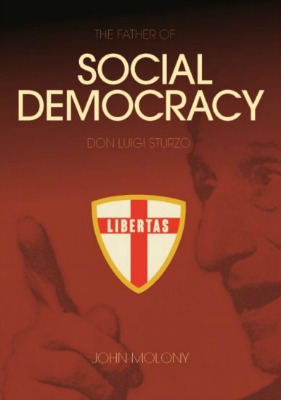
RELIGION
- Andrew Hamilton
- 25 October 2016
11 Comments
When surveying one's world it is always dangerous to forget the past. Australian historian John Molony's recent book about Italian priest and politician Luigi Sturzo is an accounting, showing how easily democracy, freedom and respect for human rights can be surrendered both by politicians and by the Catholic Church. It invites reflection on our situation today. The Italy in which Mussolini came to power and in which Sturzo operated has haunting similarities to today's world.
READ MORE 